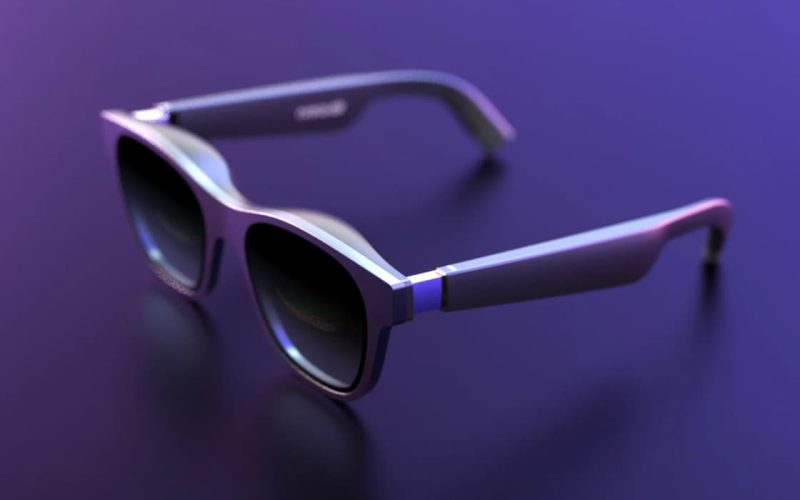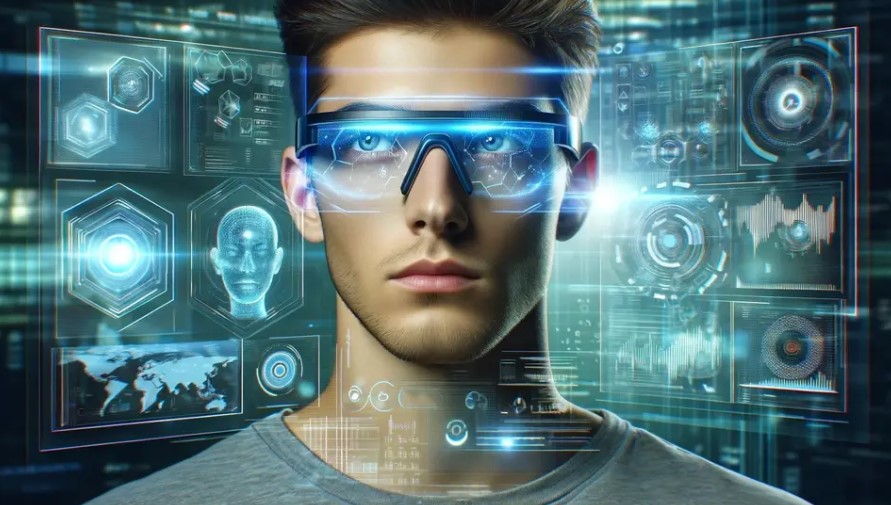Wearable technology has become a significant part of our daily lives, with devices like fitness trackers, smartwatches, and AR headsets offering greater convenience and insight into our personal data. But what if your next wearable could revolutionize the way you interact with the world around you—without being a bulky device that needs constant attention? Enter AI-powered smart glasses: sleek, futuristic eyewear that could change the way we see and experience the world. But how far along are we in making these glasses a mainstream reality?
What Are AI-Powered Smart Glasses? AI-powered smart glasses are essentially eyewear that integrates artificial intelligence (AI), augmented reality (AR), and various sensors to provide users with enhanced functionality in real-time. Unlike traditional smart glasses like Google Glass or Microsoft’s HoloLens, which focus on visual overlays, AI smart glasses leverage AI technology to understand and predict user needs, providing context-aware information directly into the wearer’s field of vision.

The primary goal of AI-powered smart glasses is to create a seamless, hands-free experience that improves daily tasks, whether at work, in fitness, or during leisure activities.
Core Features of AI-Powered Smart Glasses
- Real-Time Visual Recognition: Using cameras and AI-powered image recognition, smart glasses can identify objects, people, or locations in real-time, offering instant information or suggestions. For example, the glasses might scan a street sign, recognize the restaurant in front of you, and display reviews, opening hours, or even suggest a nearby dish based on your preferences.
- Voice Control and Assistance: Much like how voice assistants like Siri or Alexa work, AI-powered smart glasses would incorporate advanced voice recognition, enabling users to interact with the device hands-free. You could ask for directions, send a message, or search for information, all without having to take out your phone.
- Health Monitoring: Built-in sensors could monitor vital signs like heart rate, temperature, and stress levels, providing users with continuous health tracking in a discreet and non-invasive manner. This could be incredibly useful for athletes, individuals managing chronic conditions, or anyone who wants to track their well-being throughout the day.
- Augmented Reality (AR) Features: By integrating AR technology, smart glasses can overlay helpful visual information onto the world around you. For example, when walking in a new city, the glasses could display the name of a building or give directions on how to get to your destination, enhancing your navigation experience.
- Gesture Control and Interaction: Some advanced models are even exploring gesture-based control, allowing users to interact with the glasses using simple hand movements or head gestures. This adds another layer of convenience, allowing you to control settings or switch between modes without speaking or physically touching the device.

How AI-Powered Smart Glasses Can Impact Different Industries AI-powered smart glasses hold immense potential for various industries, making them more than just a fun gadget. Here are a few sectors where these glasses could make a real impact:
- Healthcare: Doctors and healthcare professionals could use AI glasses to access patient data and medical records instantly while performing procedures, ensuring quicker decision-making. The glasses could also assist in diagnosing medical conditions by analyzing visual cues or monitoring the wearer’s health in real-time.
- Education and Training: For educational purposes, AI-powered smart glasses can enhance learning by providing interactive AR experiences. Medical students could practice surgery on AR-powered patients, while engineers could receive step-by-step guidance on complicated machinery directly through their lenses.
- Retail and Shopping: AI smart glasses could revolutionize the retail shopping experience. Imagine browsing through a store while your glasses provide product recommendations, compare prices, or show user reviews. In the future, AI-powered glasses might allow you to “try on” clothes virtually before heading to the fitting room.
- Sports and Fitness: Athletes could use these glasses to access real-time data about their performance, such as pace, distance, or heart rate, all while keeping their hands free to focus on their activity. Coaches could also use smart glasses to analyze their players’ movements, offering instant feedback during training sessions.
- Workplace Productivity: In work environments, AI-powered smart glasses could allow professionals to access emails, documents, or collaborate on projects while keeping their hands free. This would be a game-changer in industries like construction, logistics, and emergency services, where workers need to stay connected without interruption.
Challenges and Concerns While AI-powered smart glasses have the potential to transform multiple industries, there are still some hurdles to overcome:
- Privacy Issues: With the ability to record and analyze everything the wearer sees, concerns around privacy and data security are significant. Ensuring that these devices respect personal privacy while still offering valuable functionality will be crucial.
- Battery Life: Given the number of sensors, cameras, and AI features involved, powering these glasses for long periods will require significant advancements in battery technology. Longer battery life will be essential for users who want to wear them throughout the day.
- Design and Comfort: One of the challenges smart glasses face is looking fashionable and feeling comfortable. For AI-powered smart glasses to become mainstream, they need to look appealing and feel comfortable enough to wear for extended periods.
- Affordability: As with any emerging technology, the cost of AI-powered smart glasses is likely to be high initially. Widespread adoption will depend on the affordability of the devices, especially as manufacturers refine the technology.

Looking Ahead: What’s Next for AI-Powered Smart Glasses? The future of AI-powered smart glasses is incredibly exciting. As advancements in AI, AR, and wearable technology continue to evolve, we can expect smarter, more capable glasses that integrate seamlessly into our daily lives. From enhancing productivity to offering personalized health recommendations, AI-powered smart glasses may eventually become the ultimate hands-free, all-in-one device we never knew we needed.
If you’re someone who enjoys exploring new tech and staying ahead of the curve, keep an eye on the development of these smart glasses—this is a space that is sure to see major innovations in the next few years.
Conclusion AI-powered smart glasses represent the next step in the evolution of wearable technology, combining the power of artificial intelligence with the potential of augmented reality to create a device that could truly change the way we experience the world. With improvements in design, privacy measures, and battery life, these glasses could soon become as essential as smartphones. The possibilities are limitless, and the future of wearables is only getting brighter.
